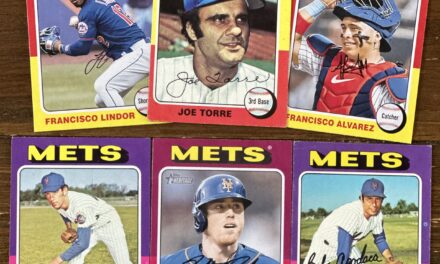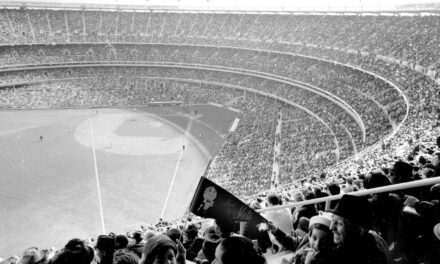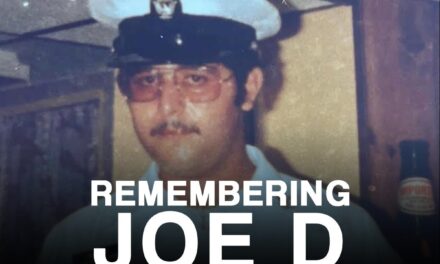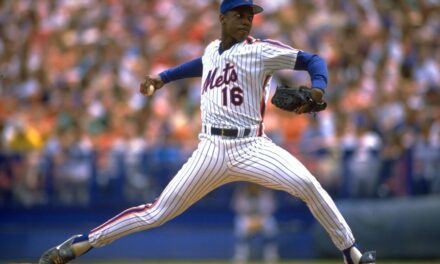
With this year’s offseason player movement activity on hold, let’s take a look back at a trade the Mets made at the 1984 Winter Meetings.
On December 10, 1984, the Mets and Expos completed a five-player trade, with the Mets getting seven-time all star catcher Gary Carter in return for third baseman Hubie Brooks, outfielder Herm Winningham, catcher Mike Fitzgerald, and pitcher Floyd Youmans.
The Mets were coming off a 1984 season that saw them move from rebuilding to contention, posting a 90-72 record, good for second place in the National League’s eastern division. The pieces were falling into place. Keith Hernandez had agreed to a six-year extension, Ron Darling and Dwight Gooden emerged as young anchors of the pitching staff, and Darryl Strawberry was a budding star. The energy was back at Shea Stadium, but the Mets needed a couple of more pieces.
Most importantly, they needed a veteran catcher to help nurture the young arms. Carter filled that need, and added a potent right-handed to complement Hernandez and Strawberry from the left side. Carter had averaged 21 home runs per season with Montreal, and accumulated a bWAR of 55.2 over 10 full seasons (one of them the strike-shortened 1981 season).
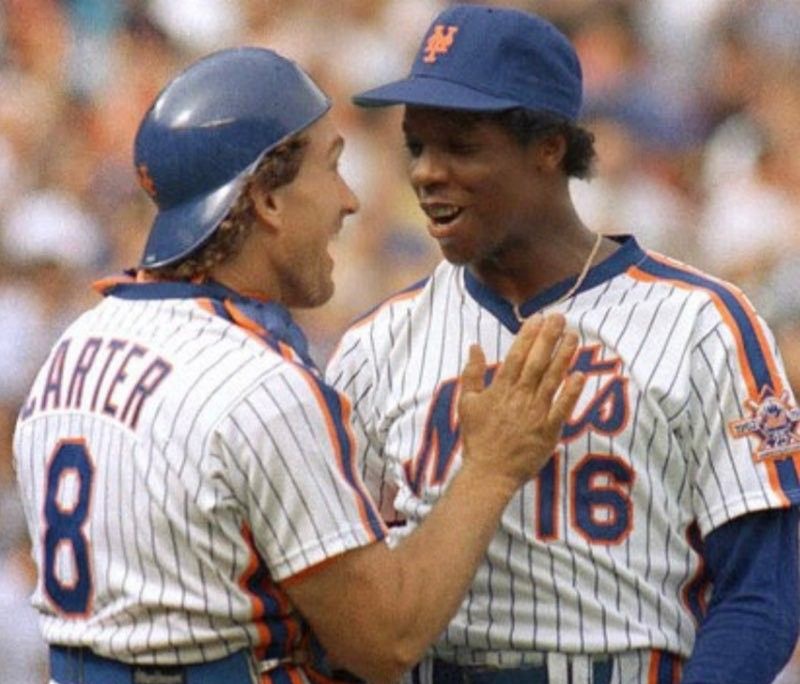
Carter would be going into his age 31 season in 1985, so the Mets got him as he was beginning the downside of his career. As Met over five seasons, Carter averaged 18 home runs, and amassed an 11.3 bWAR . His best year as a Met was his first year in orange and blue, when he slashed .281/.365/.488 with 32 home runs and 100 RBIs (6.9 bWAR).
Carter was injured during the 1986 season, playing in 132 games (.255/.337/.439 24 home runs 105 RBIs, 3.6 bWAR). He tailed off rapidly after 1986, but the Mets had gotten what they needed out of Carter. He was a key player on the 1986 world championship team. His at-bat with two outs in the bottom of the tenth inning of game six kept the Mets alive, setting up perhaps the most thrilling win in franchise history.
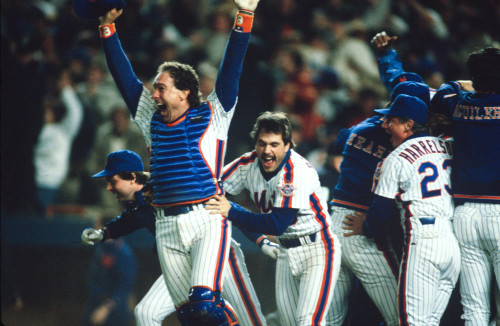
The trade with the Expos was not entirely one-sided. Brooks was good with Montreal over five seasons (.279/.322/.441 75 home runs, 390 RBIs, bWAR 9.0). Fitzgerald, a solid receiver, played seven season for the Expos. Youmans and Winningham each played four seasons in Montreal.
In some ways, this was an example of a trade that helped both teams. The Mets were ready to win, and did so with Carter as an integral part. The Expos were entering a rebuilding phase, and were able to shed an aging catcher for four usable pieces.
Carter hit his 300th home run as a Met in Wrigley Field in 1988. After his Mets career ended in 1989, Carter played one season each for the Dodgers and Giants. He had a return engagement with the Expos in 1992 before retiring.
Carter managed in the Mets system in 2005 and 2006, and coached in other leagues after that. He openly campaigned for the Mets managerial role twice, in 2004 and 2008. In 2011, he was diagnosed with brain cancer, and passed away in February of 2012.
Carter ended his career as an eleven-time all star, and was elected into the Hall of Fame in 2003. He was honored with an induction into the Mets Hall of Fame in 2001.
Mets’ owner Steve Cohen has pledged to honor the franchise’s history. Retiring Carter’s number, though it has been worn by players since he left the organization, may be a step in that direction.


